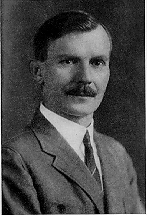 W
WMargaret Scotford Archer is an English sociologist, who spent most of her academic career at the University of Warwick where she was for many years Professor of Sociology. She was also a professor at l'Ecole Polytechnique Fédérale de Lausanne, Switzerland. She is best known for coining the term elisionism in her 1995 book Realist Social Theory: The Morphogenetic Approach. On 14 April 2014, Archer was named by Pope Francis to succeed former Harvard law professor and US Ambassador to the Holy See Mary Ann Glendon as President of the Pontifical Academy of Social Sciences, and served in this position until her retirement on 27 March 2019.
 W
WLock Yue Chew is an associate professor in the School of Physical & Mathematical Sciences, Nanyang Technological University . He works in Complex Systems, General Relativity, Quantum Chaos, Statistical and Nonlinear Physics, and has published several scientific papers. In 2004 he got his PhD in Physics from the National University of Singapore (N.U.S). He also hold a Master of Science Degree from the University of Southern California. During 1991–1992 period, he had worked as a communications engineer in Singapore Airlines Limited. After that, he became the senior member of the technical staff at DSO National Laboratories and later he became and adjunct assistant professor there. Then in 2005 he moved to Nanyang Technological University as an assistant professor. He is collaborating with many international research groups, he had coauthored some of the articles with M.I.T professor Kerson Huang. He has co-authored several articles together with M. A. F. Sanjuán of the Rey Juan Carlos University. He has also co-authored an article in Nature: Scientific Reports on the topic of the short-term forecasting of Taiwanese earthquakes, using a Fusion-Fission processes model.
 W
WBret Easton Ellis is an American author, screenwriter, short-story writer, and director. Ellis was first regarded as one of the so-called literary Brat Pack, which also included Tama Janowitz and Jay McInerney. He is a self-proclaimed satirist whose trademark technique, as a writer, is the expression of extreme acts and opinions in an affectless style. His novels commonly share recurring characters.
 W
WMiguel Angel Fernández Sanjuán is a Spanish Theoretical Physicist from Leon, Spain. He is known for his contributions in nonlinear dynamics, chaos theory, and control of chaos, and has published several scientific papers and popular news articles. He has supervised around 20 PhD students in Nonlinear Dynamics, Chaos and Complex Systems.
Martin Andreas Hainz is an Austrian philologist, theorist and philosopher. He has taught at several universities in Europe and the United States, among them the universities of Vienna, Timișoara and Iaşi. He is a member of the Northeastern Language Association (NEMLA). His main interests are contemporary Austrian philosophy and literature.
 W
WMichael Schoenberg (1939–2008) was an American theoretical geophysicist noted for his fundamental contributions to the understanding of anisotropy in the real earth and its application to the determination of texture, fracture porosity, and flow properties of reservoir rocks.
 W
WAlbert Paul Weiss was a German American behavioral psychologist, theorist, scientist, and experimentalist. He was born in Steingrund, Germany. His family moved to the United States shortly after his birth and lived in St. Louis, MO. He was raised in a household of scholarly and philosophical interests although neither of his parents were highly educated. He attended University of Missouri for both undergraduate and graduate school and eventually earned his PhD there in 1916. Weiss initially planned on majoring in physics, mathematics, and philosophy until he was inspired by his professor Max Meyer to become a psychologist. After earning his PhD, he went to Ohio State University where he did research and taught up until his death. While in school, Weiss became interested in the physiological and sociological aspects of philosophy. He was interested in the role of language in human behavior and used biology, physics, and chemistry to examine human behaviors. He died of heart disease in 1931.